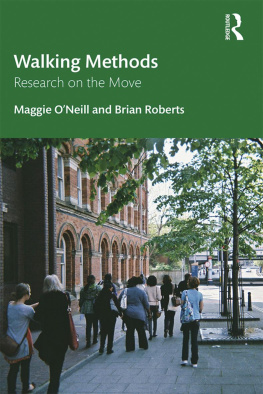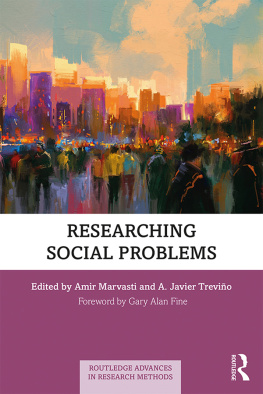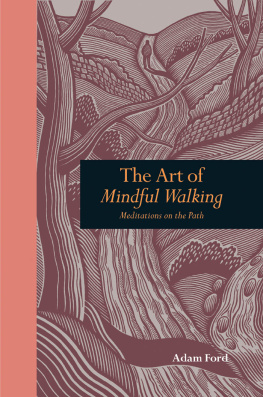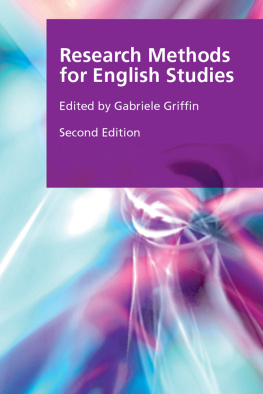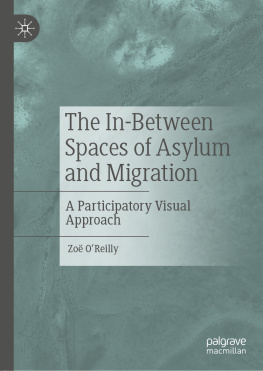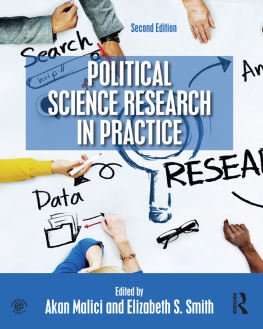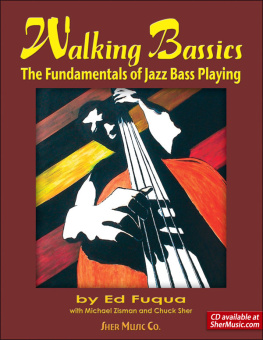This superb book explores the intersections between walking and ethnography, narrative and biographic methods, visual and participatory methods. The authors enthusiasm is infectious and will surely inspire researchers to get walking!
Jennifer Fleetwood, Senior Lecturer in Criminology, Goldsmiths College, UK
Walking Methods is an important contribution to the field of walking studies through a critical new method the Walking Interview as a Biographical Method (WIBM). The book is comprehensive in scope, detailing the history and current iterations of methods on the move across the arts and social sciences. WIBM is significant because it considers how peoples biographies and life stories are shaped through perambulation that takes place through various durations and movements. Rich in examples, exercises, and (auto)biographical reflections this book makes a unique contribution to walking methods.
Stephanie Springgay, Associate Professor, Ontario Institute for Studies in Education, The University of Toronto, Canada
A learned, revealing and absorbing route one guide to the sociology of walking and using the self as a sociological resource. Essential.
Chris Rojek, Professor of Sociology, City University of London, UK
This book is the first complex composition of theoretical and empirical approaches to the different aspects of research on the move. Deeply inspiring for sociologists, anthropologists, psychologists, and researchers of cultural studies. The high quality pedagogue supports qualitative researchers, especially those working and representing biographical studies.
Prof. Kaja Kamierska, Director of the Institute of Sociology, and Chair of the ESA Research Network 3 on Biographical Perspectives on European Societies, University of Lodz, Poland
Walking Methods
This book introduces and critically explores walking as an innovative method for doing social research, showing how its sensate and kinaesthetic attributes facilitate connections with lived experiences, journeys and memories, communities and identities. The book situates walking methods historically, sociologically, and in relation to biographical and arts-based research, as well as new work on mobilities, the digital, spatial, and the sensory.
The book is organised into three sections: theorising; experiencing; and imagining walking as a new method for doing biographical research. There is a key focus upon the Walking Interview as a Biographical Method (WIBM) on the move to usefully explore migration, memory, and urban landscapes, as part of participatory, visual, and ethnographic research with marginalised communities and artists and as re-formative and transgressive. The book concludes with autobiographical walks taken by the authors and a discussion about the future of the Walking Interview as a Biographical Method.
Walking Methods combines theory with a series of original ethnographic and participatory research examples. Practical exercises and a guide to using walking as a method help to make this a rich resource for social science researchers, students, walking artists, and biographical researchers.
Maggie ONeill is Professor in Sociology at the University of Cork. She has a long history of doing critical theory/feminist research and conducting walking, participatory, and biographical methods with communities and artists, as well as marginalised groups on topics such as sex work, migration, and participatory, creative, and arts-based methodologies.
Brian Roberts taught and researched at several UK universities and was a visiting academic at institutions in a number of countries. He was closely associated with the early work of the Centre for Contemporary Cultural Studies, University of Birmingham, UK. He has written widely on biographical research, social theory, and research practice.
WALKING METHODS
Research on the Move
Maggie ONeill and Brian Roberts
First published 2020
by Routledge
2 Park Square, Milton Park, Abingdon, Oxon OX14 4RN
and by Routledge
52 Vanderbilt Avenue, New York, NY 10017
Routledge is an imprint of the Taylor & Francis Group, an Informa business
2020 Maggie ONeill and Brian Roberts
The right of Maggie ONeill and Brian Roberts to be identified as authors of this work has been asserted by them in accordance with sections 77 and 78 of the Copyright, Designs and Patents Act 1988.
All rights reserved. No part of this book may be reprinted or reproduced or utilised in any form or by any electronic, mechanical, or other means, now known or hereafter invented, including photocopying and recording, or in any information storage or retrieval system, without permission in writing from the publishers.
Trademark notice : Product or corporate names may be trademarks or registered trademarks, and are used only for identification and explanation without intent to infringe.
British Library Cataloguing-in-Publication Data
A catalogue record for this book is available from the British Library
Library of Congress Cataloging-in-Publication Data
A catalog record has been requested for this book
ISBN: 978-1-138-18247-9 (hbk)
ISBN: 978-1-138-18248-6 (pbk)
ISBN: 978-1-315-64644-2 (ebk)
Typeset in Bembo
by Deanta Global Publishing Services, Chennai, India
Maggie ONeill and Brian Roberts
Walking Methods: Research on the Move is a text which is very opportune coming at a time of increasing emphasis on methodologies at the boundaries of the arts and social sciences, including explorations of the role of space, movement, and the senses in research practice, and associated social intervention or policy impact. Walking, in particular, is the focus for the authors innovatory research practices within biographical research, utilising life story, ethnographic, visual, and participatory approaches in exploring lived experiences (lived lives) within the broader social structures, contexts, and processes of our social worlds (cf. Mills 1970). This monograph combines biographical study and the walking interview, supported with stimulating examples from our primary research, and our long history in the field of both biographical research and artsbased methods.
Walking is something we do every day and yet we reflect little upon it as an experience, source of knowledge, personal sharing, and memory. Beyond the few histories of walking and its use as part of artistic practice, there has been little application of the walking interview until recently in the social sciences. The long tradition of walking in arts practice (Morris 2017; Hind and Qualmann 2015; Heddon 2007; Long 1984; Fulton 2010 see ), is now being complemented by increasing work in ethnographic and anthropological research (Ingold 2007; Ingold and Vergunst 2008; Pink et al. 2010; Irving 2010; Edensor 2010), but in areas such as biographical sociology and criminology, there is still relatively little contribution (see ONeill 2015, ONeill 2017; ONeill 2018, Roberts 2015).
This text will seek to develop the walking interview for biographical sociology, by: raising awareness of the researcher and the researched within the world as moving, interacting, experiencing beings; contributing a new approach the Walking Interview as a Biographical Method (WIBM). Meanwhile, the text will critically reflect upon the theoretical, experiential, and imaginative application of the act of walking as part of biographical research. Walking, although an ordinary, familiar activity and relatively novel form of research practice, is beginning to gain momentum within social sciences as an attractive and exciting form of sociological, criminological, and other exploration.

